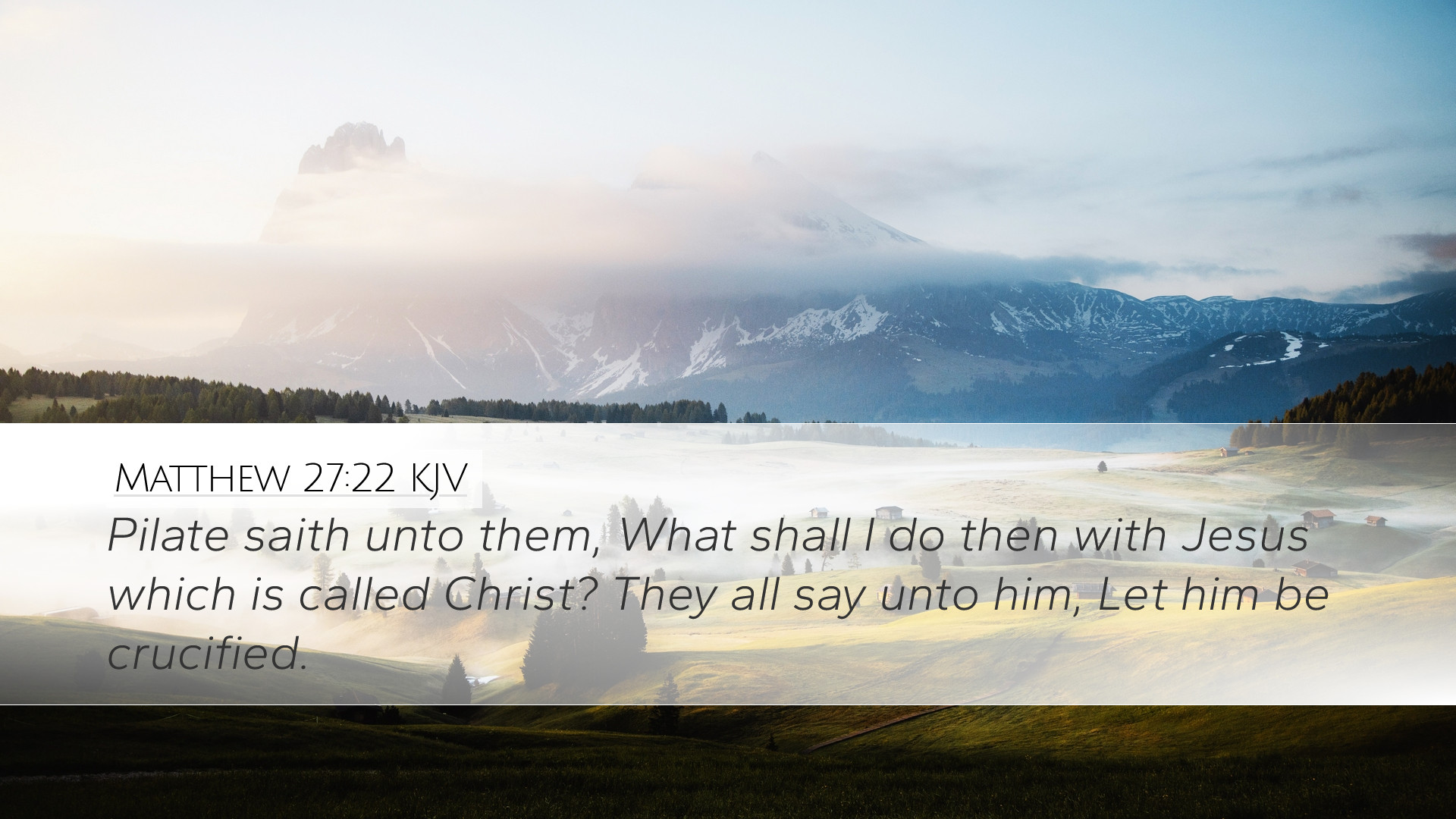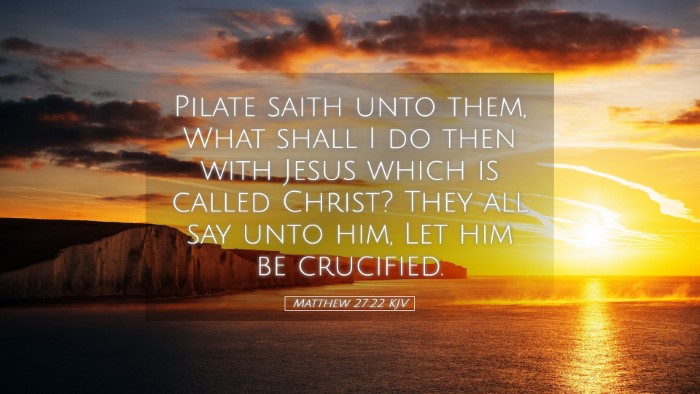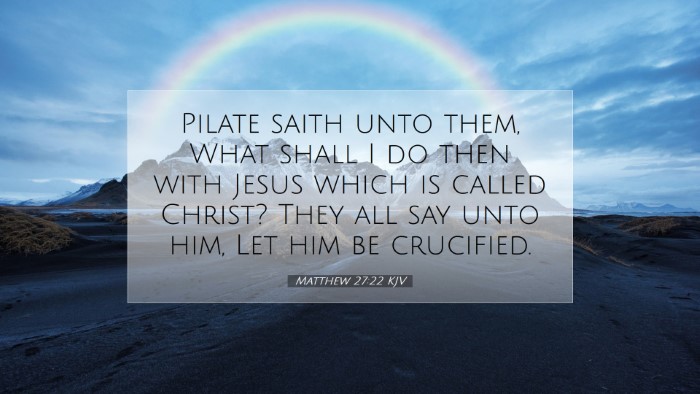Commentary on Matthew 27:22
Matthew 27:22 reads: "Pilate said to them, 'What then shall I do with Jesus who is called Christ?'" This verse presents a pivotal moment in the Passion Narrative, encapsulating the tension between political authority and spiritual truth. Below, we explore insights from several public domain commentaries to unpack the significance of this question.
Contextual Background
This verse occurs within the trial of Jesus before Pontius Pilate. The chief priests and elders have delivered Jesus to Pilate, hoping to secure His condemnation. Pilate, as a Roman governor, finds himself in a moral quandary as he grapples with the innocence of Jesus and the clamor of the crowd.
According to Adam Clarke's commentary, the political maneuvers at play reveal Pilate's awareness of Jesus' righteousness. Clarke notes that Pilate's question, “What shall I do with Jesus?”, serves not only as a literal inquiry but as a profound philosophical dilemma concerning justice, authority, and responsibility.
Insights from Commentators
- Matthew Henry emphasizes the internal struggle of Pilate, who is torn between his duty to execute justice and the overwhelming pressure of the crowd. Henry notes how Pilate’s indecision becomes a metaphor for the human condition—our struggle to choose between right and wrong, truth and deception.
- Albert Barnes provides a theological perspective, indicating that Pilate’s question reflects the ultimate choice humanity faces with respect to Jesus Christ. Barnes interprets this moment as foundational for understanding how individuals must confront the claims of Christ in their own lives.
- Adam Clarke elaborates on the historical and cultural implications of Pilate’s question. Clarke points out that the question illustrates the conflict between temporal governmental power and eternal spiritual authority. Pilate’s actions demonstrate a hesitance to acknowledge the divine nature of Jesus, thereby spotlighting a recurring theme: the conflict between the kingdom of God and the kingdoms of this world.
Theological Implications
The question raised by Pilate in Matthew 27:22 has significant theological implications. It invites reflection on the nature of authority and choice. Pilate, representing human authority, stands before the embodiment of divine authority—Christ. This moment signifies the crossroads at which every soul must stand, faced with the decision of what to do with Jesus.
Henry suggests that the response to Pilate’s question extends beyond the crowd’s immediate reaction; it beckons all of humanity to consider their own response to Jesus. In the same vein, Barnes proposes that one's answer to this question is indicative of one's spiritual state and relationship with God.
The Crowd's Influence
Pilate’s question is also influenced by the crowd’s demand for Jesus’ crucifixion. The pressure of societal and collective voices often adds complexity to moral decision-making, as highlighted by Clarke. This aspect is critical for pastoral application, encouraging leaders to consider the weight of public opinion in contemporary contexts.
Henry remarks that the majority’s voice often leads to injustice, challenging leaders and believers today to seek God’s guidance rather than succumbing to societal pressure. This commentary reminds us that Pilate’s failure to act justly stems from his desire to placate the people rather than uphold righteousness.
Personal Application
For pastors, students, and theologians, the pertinent question remains: What will you do with Jesus? This question is central to Christian faith and practice. Each individual must answer this not just in a one-time moment of decision but continually, through their actions, beliefs, and life choices.
In light of Barnes’ insights, believers can see their engagement with this question as a spiritual journey—a continual process of submitting to Jesus’ lordship. Clarke adds that every decision made in relation to Christ influences one’s spiritual walk, underscoring the importance of aligning with God’s will.
Conclusion
Matthew 27:22 serves as a poignant reminder of the choices we face regarding Christ in our own lives. The interplay of justice, authority, and popular opinion as demonstrated in this verse provides a rich field for exploration. The interpretations of Henry, Barnes, and Clarke encourage us to engage deeply with the text, allowing it to reflect our own spiritual state and influence our actions.
As we wrestle with Pilate’s question, may we seek the courage to stand firm in our conviction of Christ’s innocence and lordship, making choices that honor Him above all else.


